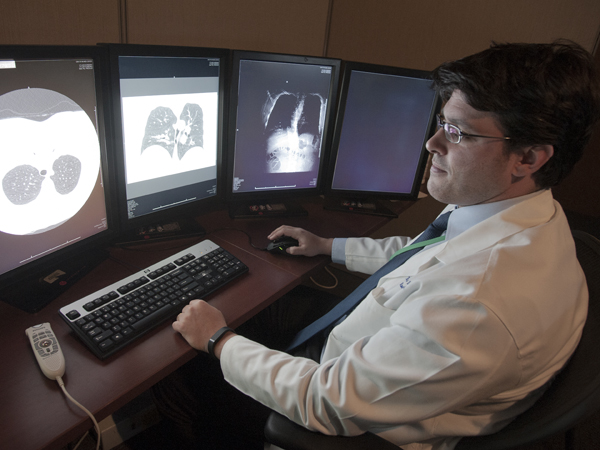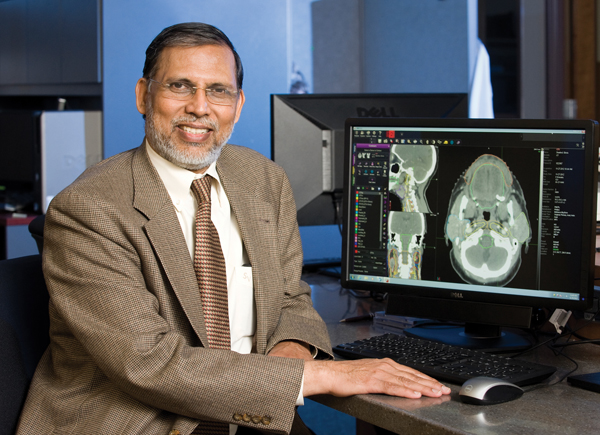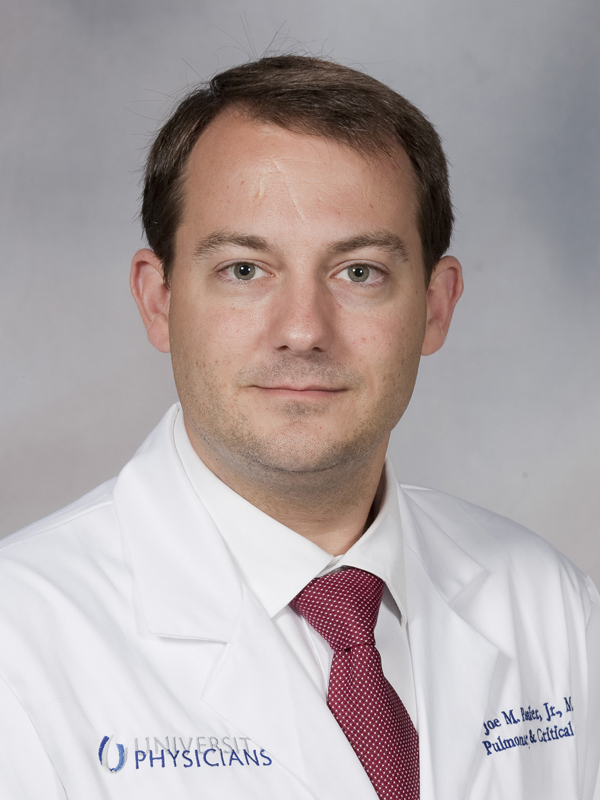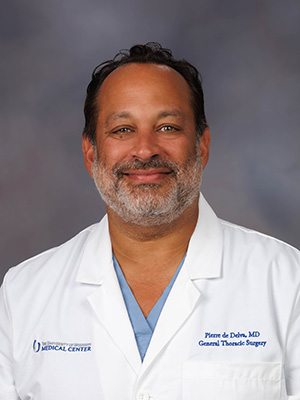Low-dose CT screen better pinpoints lung cancer

He’s between 55 and 74, and either smokes now or kicked the habit within the previous 15 years. During the time he was a smoker, he went through at least a pack a day, for at least 30 years.
And, he has no history of malignancies – yet – beyond basic skin cancer.
That’s the person, male or female, who is at high risk for lung cancer. Physicians at the University of Mississippi Medical Center urge them to take advantage of a relatively new screening to discover lung cancer earlier, and perhaps save their life by being proactive.
With early detection, “we can treat it more effectively and obtain cures,” said Dr. Srinivasan “Vijay” Vijayakumar, professor of radiation oncology and director of the UMMC Cancer Institute.
And just because you’re healthy and feel fine doesn’t mean cancer cells aren’t lurking, he said.

“The trick is to get it when it’s not symptomatic,” Vijayakumar said. “That happens when we can diagnose it early enough. Usually when the symptoms occur, it’s too late.”
Although the screening has been offered at UMMC for a little over two years, the federal Centers for Medicare and Medicaid Services only recently made the $150 test a covered service. That sets the stage for more private insurance plans to do the same, along with insurers on the Affordable Care Act’s health-care marketplace.
Lung cancer is the leading cause of cancer death in the nation and a leading cause of cancer deaths in Mississippi. The American Cancer Society estimates almost 2,000 Mississippians will die of lung cancer annually.
Screenings are performed in the radiology department by UMMC’s lung cancer care team at any of the American College of Radiology-accredited CT scanners, located at the main hospital, University Pavilion on the UMMC campus, the Grants Ferry Clinic in Flowood, or the Jackson Medical Mall. A screening includes a low-dose CT scan, review by a radiologist experienced in detecting lung cancer, and a visit with a pulmonologist. Other health-care providers in the metro area and elsewhere in Mississippi also offer the screening.
Before the low-dose CT scan test was available, doctors used a chest X-ray to diagnose lung cancer. However, a 2011 National Cancer Institute study showed those screened with a low-dose CT scan were 20 percent less likely to die of lung cancer than those screened by a chest X-ray.
That’s because a chest X-ray simply doesn’t detect as many nodules, or “spots” on the lungs, as a more complex CT scan, said Dr. Frederico Souza, an assistant professor in the Department of Radiology. The CT scan “also covers the upper abdomen. You can pinpoint other incidental findings which can be clinically significant, other than an abnormality suspicious for lung cancer, in about 8 percent of cases,” Souza said.
Much like during a traditional CT scan, patients lie on a long table as a scanner rotates around them. But, the radiation used “is about five times less than a regular CT scan,” Souza said. “Ionizing radiation has a lot of risks, including increasing the risk of cancer. That’s why we try to give a minimal dose.”
Scans are read and results reported within 24 hours, Souza said. The low-dose CT scan, unlike a chest X-ray, allows radiologists to better differentiate between benign nodules, such as those that demonstrate calcification, from those that are suspicious for lung cancer.
If an abnormality is found, the patient is referred to a UMMC pulmonologist – but also encouraged to speak with a pulmonologist, even if no abnormalities are found, because they’ll continue to have some or all of the same risk factors.

That’s where Dr. Joe Pressler, a pulmonologist and assistant professor of medicine, enters the picture. “We lead the charge to figure out the next step of diagnosis,” Pressler said.
“Pulmonologists are both a first and second line of defense,” he said. “The first line of defense is that we see patients who are at high risk. People who are primary physicians see these patients all the time, and they can tell them if they need to be screened.
“The second line of defense is what we do when a patient has an abnormal scan,” Pressler said. “The role of the pulmonologist is to evaluate the scan, determine the risk factors and how the scan looks, and what the next step will be. It could be watchful waiting, a biopsy, or depending on the location of the abnormal lesion, a biopsy by the pulmonologist or interventional radiologist rather than a surgeon.”
Those who meet the risk factors need to realize that if they are showing lung cancer symptoms – among them a cough or change in usual cough, coughing up blood, or pain in their chest wall – a diagnosis of cancer means it’s likely widespread, the lung cancer care team says.
“Once you have the symptoms, it’s usually so advanced that treatment options are limited,” Pressler said. “If you find it early when it’s small and we can cut it out, the cure rates skyrocket. And, without a screening program, a majority of lung cancers aren’t caught until they’re advanced.”

In patients with stage 1 lung cancer, “surgery is an option, and often can be done minimally invasively with a small incision,” said Dr. Pierre de Delva, assistant professor of surgery and a general thoracic surgeon specializing in surgical management of lung cancer.
“When lung cancer goes beyond stage 1, the number of options to treat it goes down, and the need for chemotherapy and radiation goes up,” de Delva said. “There are still multiple treatments, but the prognosis is not as good. When it becomes stage 4, it’s very difficult to cure.”
Pressler said the public should adopt the mindset that lung screening, for those who meet the risk factors, should fall in line with other common screenings, such as mammograms and colonoscopies for people of a certain age.
“For every 50 patients, if we find one positive for cancer in a lung screening, it’s worth it if you can treat them,” Pressler said. “This is a very good screening when used appropriately.”
“Our message is that almost every patient with an early stage lung cancer can be treated in some way, and that treatment saves lives,” de Delva said. “The screening is important so that you will have more options.”
To schedule a screening, call 601-984-5691.


